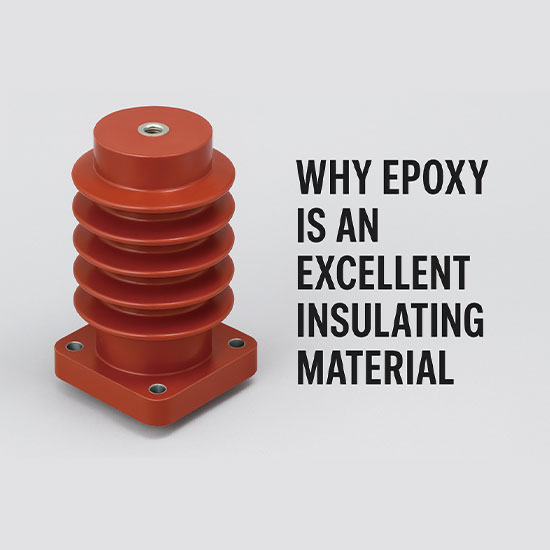In modern electrical engineering, epoxy insulators have become a go-to solution for medium- and high-voltage insulation. A frequent question from engineers and procurement specialists is: “Is epoxy a good insulator?” The answer is a strong yes—but what makes it so? Let’s explore the specific qualities that make epoxy one of the most trusted materials in power insulation applications.

Epoxy resin offers outstanding electrical insulation performance, with dielectric strengths typically exceeding 18 kV/mm. This allows epoxy insulators to effectively prevent current leakage and electrical breakdown even under high-voltage conditions.
Unlike some thermoplastics, epoxy maintains its shape and insulating capacity even when exposed to mechanical stress or elevated temperatures. This makes it highly reliable for use in busbars, switchgear, circuit breakers, and transformers.
Epoxy’s molecular structure repels moisture and resists degradation from oils, solvents, and industrial pollutants. This is crucial for long-term operation in humid, coastal, or corrosive environments.
Most epoxy insulators function effectively in temperatures ranging from –40 °C to +120 °C without losing insulating properties. The material’s thermal stability ensures continuous performance in environments with high load variation.
Epoxy insulators are engineered to maximize creepage distance and resist surface tracking, which helps prevent flashovers—especially important in polluted or wet conditions.
Epoxy components have high tensile, compressive, and flexural strength, supporting structural loads while insulating. This dual-purpose property is especially useful in compact switchgear and pole-mounted installations.
Thanks to epoxy’s moldability, manufacturers can produce complex geometries, integrate metal inserts, and offer customized insulator designs for specific applications—without compromising performance.
Indoor switchgear and RMUs
Outdoor transformers and substations
Rail transit electrical systems
Renewable energy power conversion units
In all these cases, epoxy insulators not only provide electrical separation but also enhance safety, reduce maintenance, and ensure system longevity.